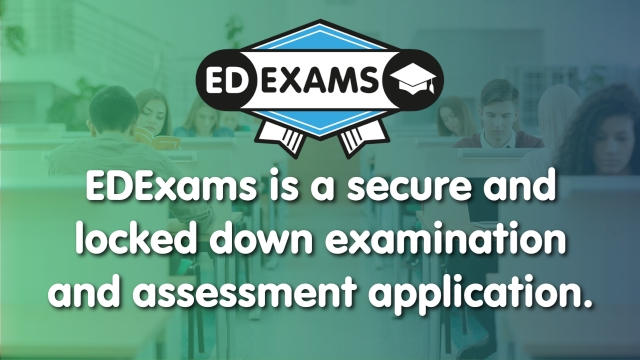The rise of online examinations has seen several advantages to their traditional paper-based counterpart. However, exams can be daunting, and stressful and provide a concern for all involved.
In this blog, we’ll take a look at the good, the bad, and the ugly aspects of online exams so you can be well-prepared when taking or delivering one.
The Good
- Convenience: Online exams can be taken from anywhere with an internet connection, which can be more convenient for students. This is especially beneficial for students who live in rural areas or who have difficulty travelling.
- Efficiency: Online exams can be more efficient for teachers to grade, as they can be automatically scored. This can save teachers a lot of time and effort, especially if they have a large number of students to grade.
- Flexibility: Online exams can be more flexible than traditional pen-and-paper exams. For example, online exams can be timed or untimed, and they can be taken in multiple sittings. This can be beneficial for students who need extra time to complete the exam or who have difficulty taking exams in one sitting.
- Cost-effectiveness: Online exams can be more cost-effective than traditional pen-and-paper exams, as they do not require the purchase of paper, pencils, and other materials. Additionally, online exams can be reused multiple times, which can save money in the long run.
- Immediate feedback: Online exams can often provide students and professionals with immediate feedback on their performance, which can help them to identify their strengths and weaknesses.
- Environmental benefits: Online exams can reduce paper waste and help to protect the environment.
The Bad
- Malpractice: Online exams can be more easily cheated on than paper-and-pencil exams. For example, students can use search engines to look up answers to questions or have someone else help them take the exam. Ensure you have a secure application or system in place that helps mitigate this.
- Accessibility: Online exams can be less accessible to students with disabilities or those who do not have access to reliable internet access. It’s important to choose platforms that accommodate all types of needs and ensure candidates can access the exam when needed.
- Technical problems: Online exams can be affected by technical problems, such as internet outages or other difficulties. Make sure to have a standard internet connection and you are away from any disturbances.
The Ugly
- Data security: There is a risk that student data could be compromised if online exams are not properly secured. Make sure the platform chosen has appropriate cyber security and your data is not compromised.
- Academic dishonesty: Online exams can also lead to academic dishonesty. For example, students could potentially fabricate their answers or plagiarise their work. This can have serious consequences for students, such as failing the exam or being expelled. There are ways to overcome this, so ensure you have tools and systems available to resolve this.
- Reduced motivation: Students and professionals may be less motivated to take online exams than traditional pen-and-paper exams. This is because online exams can be more impersonal and less engaging. Ensure that candidates are constantly engaging with the exam by excessive monitoring.
Use a trusted online exam platform
EDExams is a secure online examination platform that uses a locked application so candidates cannot cheat. In addition to this, live proctoring is provided by the team so candidates are monitored at all times.
The platform can be used on both Windows and Mac and only requires 3 Mbps for upload and download speed making it extremely accessible. Everything is secure with EDExams and all data is protected so exams can be taken stress-free.
If you would like to learn more about EDExams send an email to mail@edexams.com, call 01909 384090 or book a free online demonstration here.











